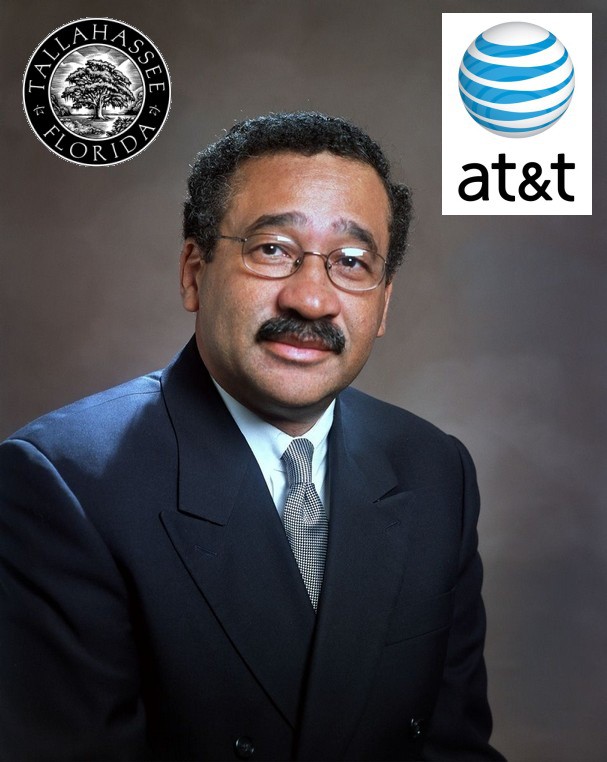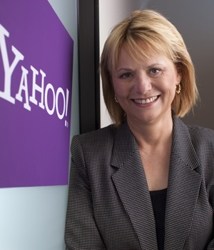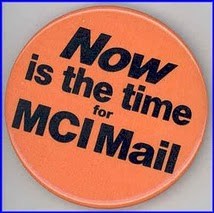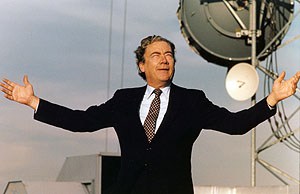A growing scandal involving AT&T and the mayor of the state capital of Florida has further exposed the link between AT&T’s pay-for-play public policy agenda and the politicians willing to act as puppets for the phone company’s interests.
Tallahassee Mayor John Marks strongly promoted an Atlanta nonprofit group to participate in a $1.6 million dollar federal broadband grant to expand Internet access to the urban poor and train disadvantaged citizens to navigate the online world, without disclosing he was a paid adviser to the group.
What the rest of the city never knew is that the Alliance for Digital Equality (ADE) is little more than an AT&T astroturf effort — a front group almost entirely funded by AT&T that actually did almost nothing to bring Internet access to anyone.
The Alliance for Digital Equality, a group supposedly focused on erasing the digital divide, spends an inordinate amount of time running radio ads under the alias of “Alliance for Equal Access” for competition in cable-TV… when that competition comes from AT&T U-verse. Listen to two radio commercials run in Georgia and Tennessee, both AT&T service areas, promoting legislation that was introduced at the behest of AT&T and promoted by ADE. (2 minutes)
You must remain on this page to hear the clip, or you can download the clip and listen later.
In fact, an investigation by a Tallahassee newspaper reviewing the group’s federal tax returns found four of every five dollars spent by ADE went to board members, consultants, lawyers, and media companies for the purpose of promoting AT&T’s agenda against Net Neutrality and for the company’s various business interests:
Marks also didn’t mention when he brought ADE to the City Commission in September 2010 that AT&T has been paying him since the early 1990s as a lawyer and consultant.
Tax returns for ADE show it got $7.36 million from AT&T from 2007 through 2009. Among its expenses, it spent $2.7 million on consulting and legal fees, $1.2 million on travel, $1.1 million on media and communications and $931,509 in pay to officers and board of advisers members.
ADE spent nothing on projects to provide Internet access to underserved areas from 2007-09. It wasn’t created to do so. The group’s mission, as reported to the IRS, was to advocate “technology inflows to underserved communities by interacting with elected officials, policymakers at all levels of government and private sectors.”
In those interactions, ADE presented the same message as AT&T in opposition to greater price regulation of the Internet.
View the 2007, 2008, and 2009 tax returns for the Alliance for Digital Equality yourself.
Some of ADE’s officers and board members are familiar to Stop the Cap! readers as loyal AT&T advocates. Even worse, many of them routinely play the “race card” whenever AT&T’s agenda is threatened. Take Shirley Franklin. She is the former mayor of Atlanta, but these days her biggest constituent is AT&T. Last August, Franklin helped lead an attack against Free Press, a consumer advocacy group, that she said “target[ed] women, African-Americans and other minorities” after the group complained about the ties between several civil and minority rights organizations and AT&T.
Julius Hollis, chairman and founder of the Alliance for Digital Equality, was even more strident.
“I am extremely disappointed in the Free Press, not only in its policies and tactics that they are attempting deploy in their strategy paper, but equally disturbing are its attempts to portray the African-American and Latino consumers as expendable in their efforts to promote Net Neutrality,” Hollis said last year. “In my opinion, this is going back to the tactics that were used in the Jim Crow era by segregationists. It’s no better than what was used in the Willie Horton playbook by Lee Atwater who, upon his deathbed, asked for forgiveness for using such political behavior tactics.”
Stop the Cap! exposed ADE ourselves as a “dollar-a-holler” advocate in August 2010 when we learned the majority of the group’s funds came from AT&T.
Anne Landman, managing editor of the Center for Media and Democracy, told the Tallahassee Democrat the purpose of groups almost entirely sponsored by a single corporate interest is to obfuscate the messenger. “It’s a nontransparent way of operating,” she said. “People don’t know who’s behind these efforts. So it’s fake, and it’s phony, and it gives people wrong information. It’s designed to purposely fool people.”
The newspaper spent months trying to track down financial reports, tax filings, and other documentation about the group, and ran into repeated resistance. At one point, written requests sent to the group’s headquarters in Atlanta were returned unopened and marked “refused.”
ADE’s corporate influence is bad enough, but when the group uses race, gender, and economic cards to attack real public interest groups, it raises eyebrows, particularly when the group doing the attacking is financed by a corporate entity. The Black Agenda Report, a website that can hardly be accused of racism, called out Franklin and the organization she represents.
The newspaper’s investigation also found all of ADE’s employees were actually independent contractors. Non-profit group experts claim the entire structure of ADE is unusual because it funnels all of its money through contractors.
Tallahassee Mayor John Marks is apparently one of them, having received $86,000 as a member of ADE’s board of advisers in addition to AT&T paying him directly as a lawyer and consultant.
With the recent revelations, Tallahassee’s broadband grant is now in ruins and will be returned, unspent. Marks is reportedly under investigation by the FBI for potential corruption. And another AT&T astroturf effort has been exposed and has blown up in the company’s face.
[flv]http://www.phillipdampier.com/video/WCTV Tallahassee Mayor Under Fire Over ATT-ADE Ethics Scandal 3-29-11 – 9-15-11.flv[/flv]
Stop the Cap! has compiled almost a year of coverage of the burgeoning scandal in the Tallahassee mayor’s office, courtesy of WCTV-TV, which has doggedly pursued the scandal with assistance from its news partner Tallahassee Reports. (10 minutes)


 Subscribe
Subscribe











